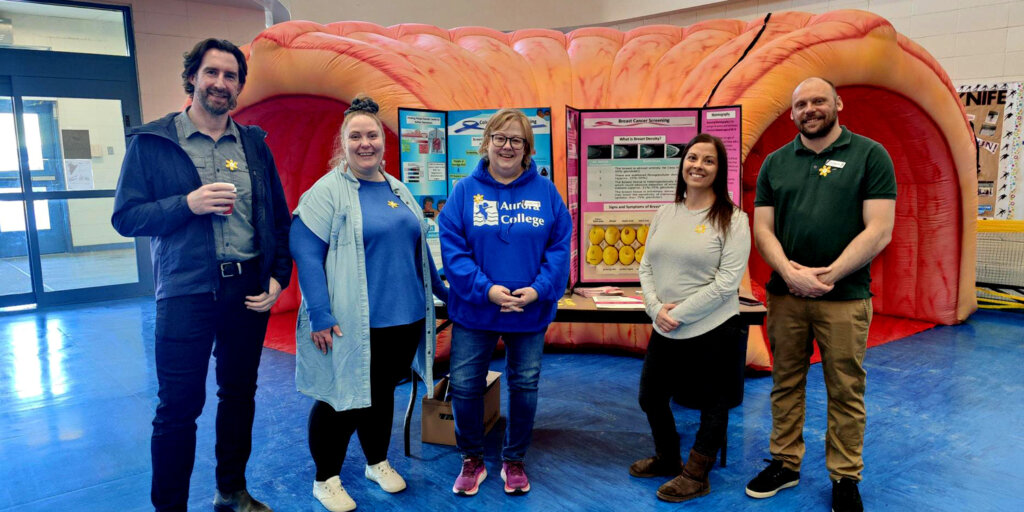Home » What Strategies Could Increase Cancer Screening Participation?
What Strategies Could Increase Cancer Screening Participation?

Early cancer detection significantly improves patient outcomes, yet screening access remains problematic, especially in rural and remote areas. Late-stage cervical cancer presents severe health challenges, with survival rates under 20% for those diagnosed at this stage. Conversely, early detection raises the five-year survival rate to above 90%. This emphasizes the importance of effective screening programs, which can identify the human papillomavirus (HPV)—a precursor to cervical cancer—before cancerous cells develop.
Ann-Marie Edwards from the Canadian Cancer Society (CCS) highlights the need for timely diagnoses and treatment, asserting that “screening saves lives.” However, many Canadians lack routine access to cancer screening due to a significant primary care crisis. Approximately 6.5 million Canadians do not have a family doctor, leading to missed opportunities for routine tests and later-stage cancer diagnoses. A study in Ontario indicated that over a third of cancer patients had visited an emergency department shortly before their diagnosis, often due to cancer-related symptoms.
In remote communities, the lack of medical facilities compounds the issue. According to Dr. Kami Kandola, the Chief Public Health Officer for the Northwest Territories, small populations often lack well-resourced clinics, and medical staff are frequently overwhelmed. Events such as disease outbreaks can halt screening initiatives. Consequently, fewer than 50% of eligible women in these regions undergo cervical cancer screening.
Barriers to effective cancer screening include a lack of resources, older and less mobile populations, and cultural mistrust toward institutional healthcare, especially in Indigenous communities. CCS advocates for innovative approaches to enhance screening access, like mobile clinics and self-administered testing kits, which can be especially beneficial in rural areas.
Technological advancements offer promising solutions. Companies like Oxford Cancer Analytics and mDetect are developing liquid biopsies that can detect cancer biomarkers from blood samples. Additionally, research is underway at the University of British Columbia to create lung cancer screening tests that use breath samples. These technologies can simplify testing, requiring less specialized equipment and staff.
Self-administered kits for cervical cancer screening represent a major advancement, enabling women to test for HPV risk at home. The Northwest Territories Cancer Program plans to distribute these kits to women in remote areas, aiming to increase screening participation rates toward the 90% target set by the Canadian Partnership Against Cancer for 2030.
Raising awareness about these screening opportunities is crucial. Engaging community-driven initiatives can help boost participation; for instance, NWT has utilized an inflatable colon to promote colorectal cancer screening in various communities. Other programs, like those by Niagara Folk Arts Cultural Centre, have fostered awareness through community-driven kitchen events featuring trained health ambassadors.
For Indigenous populations, customized and culturally sensitive strategies are vital for overcoming mistrust and improving screening access. Events designed specifically for Indigenous people, promoting walk-in access and led by members of the community, have shown promise in building trust and increasing participation.
Effective solutions must be locally developed, highlighting the importance of community involvement in healthcare decision-making. The Canadian Cancer Society and MaRS's initiative to create community-designed solutions for rural and remote cancer screening represents a significant step toward addressing these challenges. Ultimately, the goal is to encourage early testing and diagnosis for enhanced survival outcomes while ensuring that the solutions resonate with the unique needs of various communities.
MaRS Discovery District
https://www.marsdd.com/
MaRS is the world's largest urban innovation hub in Toronto that supports startups in the health, cleantech, fintech, and enterprise sectors. When MaRS opened in 2005 this concept of urban innovation was an untested theory. Today, it’s reshaping cities around the world. MaRS has been at the forefront of a wave of change that extends from Melbourne to Amsterdam and runs through San Francisco, London, Medellín, Los Angeles, Paris and New York. These global cities are now striving to create what we have in Toronto: a dense innovation district that co-locates universities, startups, corporates and investors. In this increasingly competitive landscape, scale matters more than ever – the best talent is attracted to the brightest innovation hotspots.


